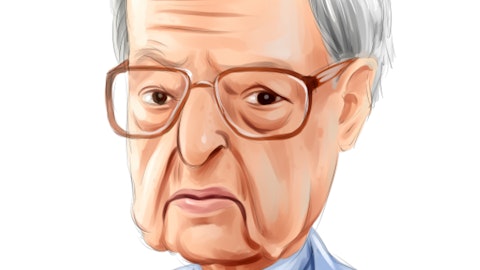Clint Carlson’s Carlson Capital is a multi-strategy hedge fund located in Texas which takes pride in a contrarian approach to investing. It also likes to emphasize a company’s philosophy of doing business as well as more measurable characteristics. Carlson recently filed its 13F with the SEC, which discloses many of the stocks that the fund owns and the sizes of those positions. Read on for our quick take on the fund’s top picks and compare them to previous filings.
Carlson’s top pick was Sunrise Senior Living, Inc. (NYSE:SRZ), which provides both independent and assisted living communities and services to seniors. The current market cap is about $830 million (with well over $1 million in average daily dollar volume) after having received an acquisition offer in August. Hedge funds such as Carlson like to invest in merger arbitrage strategies because the return on investing in an acquisition target has a very low correlation with the returns of the overall market (read more about hedge fund investments in merger arbitrage).
The fund kept its stake in PNC Financial Services (NYSE:PNC) roughly constant at 1.7 million shares between the beginning of July and the end of September. As with many large banks (though PNC, at a market cap of about $30 billion, is considerably smaller than the megabanks), it trades at a discount to the book value of its equity with a P/B ratio of 0.9. PNC is one of the more stable banks, with its earnings up 10% last quarter compared to the third quarter of 2011, and it pays a dividend yield close to 3%. We’re currently thinking of it and JPMorgan Chase as “Goldilocks” picks between the cheaper, riskier Citigroup Inc. (NYSE:C) and Bank of America and the safer, premium-priced Wells Fargo.
NRG Energy Inc (NYSE:NRG), a $4.5 billion market cap electric utility, was another of Carlson’s favorite stocks as the fund reported a position of 5.1 million shares (a little more than double what it had owned three months earlier). NRG is actually unprofitable on a trailing basis due to poor performance in late 2011 and early 2012, and trades at 55 times consensus earnings for 2013. With a fairly low dividend yield for a utility, and that much of an earnings premium relative to other utilities, we don’t think that it’s a good value.
Carlson and his team cut their stake in Citigroup to 3.2 million shares, but it still joined PNC as a large bank among the fund’s top holdings. Citi is up 28% year to date, but still trades at a P/B ratio of 0.6 as the book value of its equity remains well above the market capitalization. In terms of earnings Citi is priced more even with other banks, at a forward P/E of 8, and its revenue and net income were down sharply in the third quarter versus a year earlier. The valuation statistics are attractive, but as we mentioned above we’d rather pay a small premium to get a considerably safer investment. See more analysis of Citigroup compared to its peers.
$3.2 billion market cap Hillshire Brands Co (NYSE:HSH), which sells meat and other food products, rounded out Carlson’s top five holdings. The hedge fund had initiated a position in the stock during the second quarter, and then bought more shares to close September with a total of 3.9 million shares in its portfolio. Hillshire beat expectations in its report for the third quarter, and current consensus among analysts has the stock trading at 15 times earnings for the fiscal year ending in June 2014. Hillshire manages the American operations of the former Sara Lee corporation, and the recent breakup means that investors will have to be careful when doing financial analysis. At that multiple it doesn’t look particularly appealing in any case.






